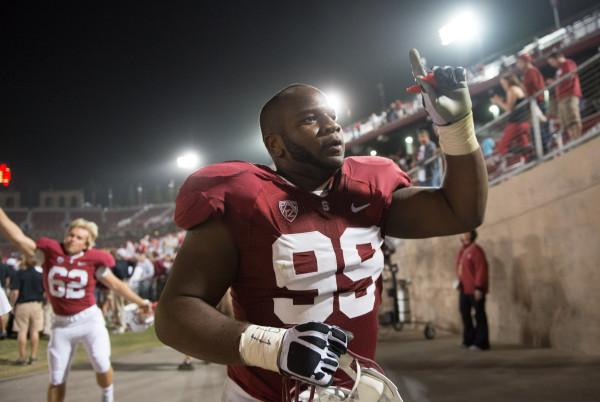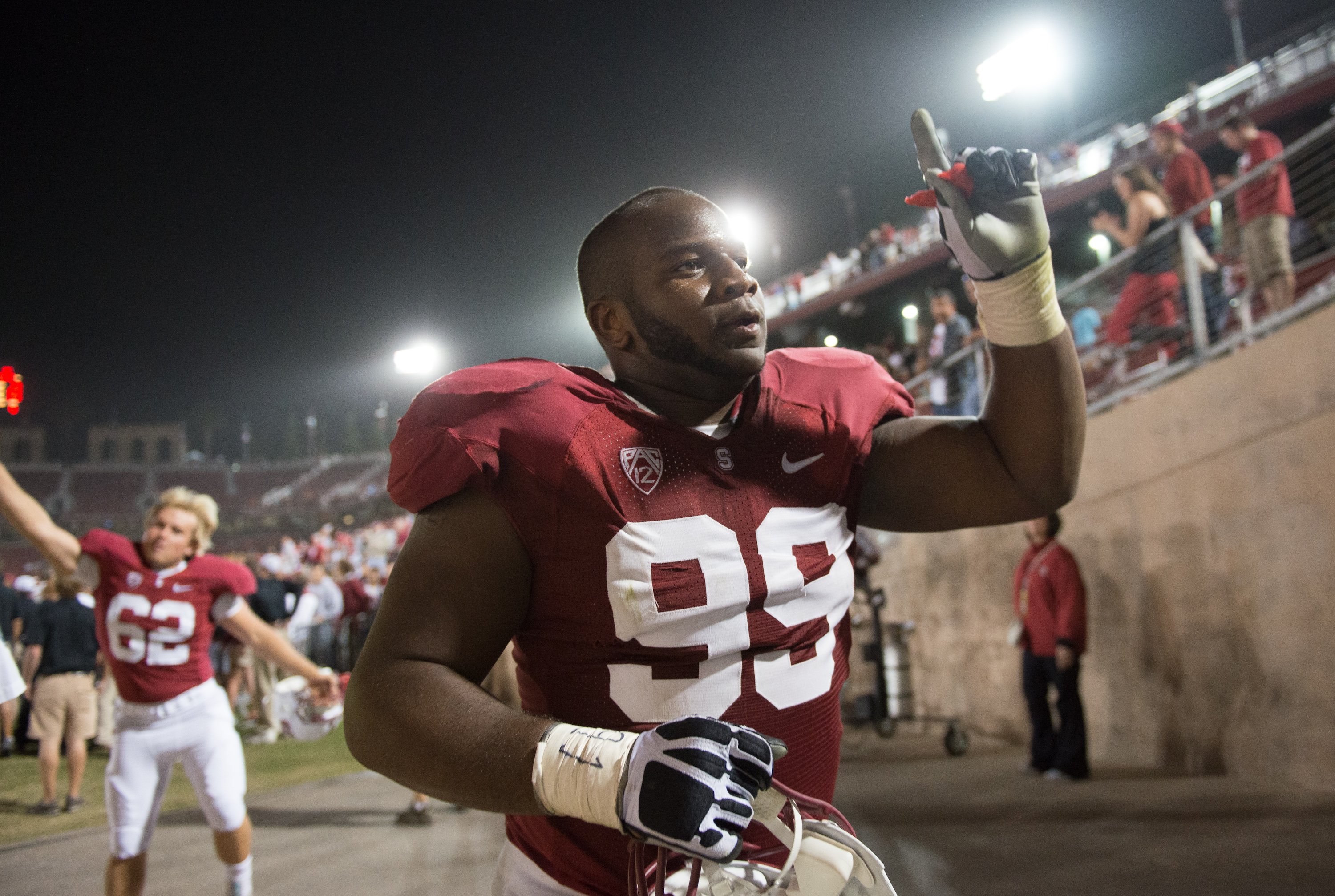
Senior defensive tackle Terrence Stephens has been deemed “not eligible to participate in the Rose Bowl Game due to a secondary violation of NCAA rules regarding his rental of off-campus housing,” a University spokesperson confirmed in a statement Friday.
“I love my team and the work we’ve all put in to get to this point,” Stephens tweeted after the violation was made public. “My situation is irrelevant. Go to the Rose Bowl and cheer on a great team.”
Stephens missed the team’s last two games against UCLA to deal with what had been called “a personal matter.”
“It’s been an ongoing process,” head coach David Shaw told reporters after the team’s Friday practice. “There’s been a lot of information-gathering going on. Once all the dust settled, that’s what came out. We tried to make sure that we did the best service we could for Terrence, making sure we found out all the information that we could — the Pac-12 and the NCAA as well. And this is the final result.
“He knew that it was a possibility, but he was very disappointed,” Shaw added. “I was disappointed for him. He’s one of those guys that’s a fourth-year guy; he came here with the goal to play in this game. He’s done a lot of work to help us get there. His play against Oregon, his play against USC, was phenomenal. And it’s unfortunate, it’s one of the facts of life, and like I said we’re all going to handle it like Stanford men and move forward.”
Stephens made seven starts this season, registering 10 tackles and a sack. In his absence, junior David Parry has stepped up to anchor the defensive line.
Though the announcement marks the end of Stephens’ Stanford career, he will still be aiming to make an NFL roster next fall. CBS Sports has him listed as the 54th best defensive tackle prospect in the nation.
“He’s doing okay, he’s going to get his Stanford degree, he’s going to take his shot at the NFL,” Shaw said. “This is a minor bump in the road but we still hope the best for Terrence going forward.”
As of June 2011, Stanford was one of only four major-conference schools — at the time, including Penn State — to have never recorded a major NCAA violation. That is still the case, as the violation pertaining to Stephens was deemed “secondary” and not “major.”
